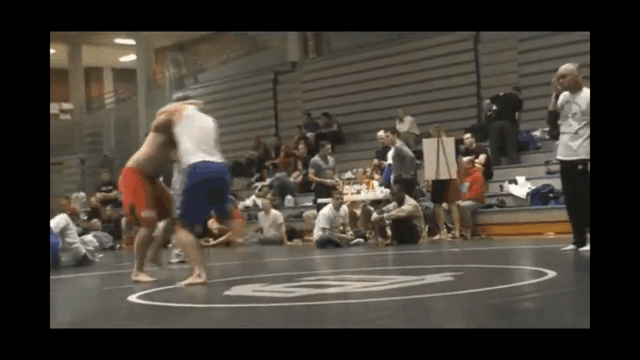O'Malley
2nd Black Belt
I get that you feel like you can't beat him (although the article is actually geared towards white/blue belts that struggle against spazzy white/blues, because it assumes that purple/brown/black know how to deal with spazzy guys), but if he's just focused on winning the round with his noob-killing tricks instead of improving, you'll soon be better than him. For example:I won't anymore.
This article is for when you're better than the other person.
I am absolutely not. I remember one day, we were playing King of the Hill, where the King has to start seated, first to score a point wins. He kept getting yelled at by the coaches because he kept just standing up and landing a take-down. Coach kept yelling at him, "We all know you can wrestle, the goal of this exercise is to get better at guard."
This means that he's not working on guard. So if you keep training, you'll end up at a point where you can defend the takedowns/set him up into his guard, where you will smoke him.
You have striking experience. In many striking arts, a beginner can overwhelm other beginners with sheer aggression, until they get better at dealing with that. Once they do, they pick him apart with superior footwork and technique. My point is that the cheese he's inflicting you may be good for his ego but it's an inefficient training method, so in the long run he should lag behind those who train properly.
Last edited:

